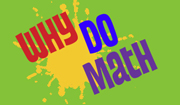References and Links
Math Awareness Month 2008
U.S. Presidential Elections
Link to US Presidential Election Data: http://www.infoplease.com/ipa/A0781450.html
Voting Vectors and Major League Baseball’s Most Valuable Players
Jean-Pierre Benoit, Scoring reversals: A major league dilemma, Social Choice and Welfare, 1992; V9, n2; 89-97.
Jean Charles de Borda, Mémoire sur les élections au scrutin. Histoire de l’Academie Royal des Sciences, Paris, 1781.
Ken Mandel, Howard’s huge year nets him NL MVP: Phils slugger led Majors in homers, RBIs in first full season, posted here on mlb.com on 11/21/2006.
Kelly Thesier, Morneau upsets field in AL MVP race: Twins first baseman tops Jeter, Ortiz and Thomas, posted here at mlb.com on 11/21/2006.
Single Transferable Vote and the Academy Awards
William V. Gehrlein and Hemant V. Kher, Decision rules for the Academy Awards versus those for elections, Interfaces, May/June 2004; V34, n3; 226-234.
Electoral Reform Society in England (supports the use of STV in elections)
Instant Runoff
Organization to promote the use of Instant Runoff: www.fairvote.org/irv
Approval Voting and Professional Societies
Steven J. Brams and Peter C. Fishburn, Approval Voting, Springer-Verlag, 2007. (originally published in 1983 by Birkhauser-Boston)
Steven J. Brams and Peter C. Fishburn, Going from theory to practice: The mixed success of approval voting, Social Choice and Welfare, 2005; V25, n2; 457-474.
Steven J. Brams, Michael W. Hansen, and Michael E. Orrison, Dead heat: The 2006 Public Choice Society election, Public Choice, 2006; V128; 361-366.
Robert J. Weber, Approval voting, Journal of Economic Perspectives, 1995; V9, n1; 39-49.
Americans for Approval Voting (a Political Action Committee to promote the use of Approval Voting):
http://approvalvoting.com
Citizens for Approval Voting (educational and outreach organization that promotes the use of Approval Voting): http://approvalvoting.org
A Best Procedure?
Vincent Merlin, Maria Tataru, and Fabrice Valognes, On the probability that all the rules select the same winner, Journal of Mathematical Economics, 2000; V33, n2; 183-207.
Same Ballots, Many Outcomes
Donald G. Saari, Millions of election rankings from a single profile, Social Choice and Welfare, 1992; V9 n4: 277-306.
Donald G. Saari lecture on creating paradoxes in voting
www.math.uci.edu/~dsaari and www.amstat.org/mathandvoting
Donald G. Saari, A dictionary of voting paradoxes, Journal of Economic Theory, 1989; V48, n2; 443-475.
Arrow’s Impossibility Theorem
Kenneth J. Arrow, Social Choice and Individual Values (2nd edition), Wiley, 1963.
Donald G. Saari, Decisions and Elections: Explaining the Unexpected, Cambridge University Press, 2001.
From Impossibility to Possibilities
Marie-Jean-Antoine-Nicola de Caritat Condorcet, Éssai sur l’application de l’analyse à la probabilité des décisions rendues à la pluraté des vois. Paris, 1785.
Kenneth A. Shepsle and Mark S. Bonchek, Analyzing Politics: Rationality, Behavior, and Institutions, W.W. Norton and Company, Inc., 1997.
Charles L. Dodgson, A discussion of the various methods of procedures in conducting elections, 1873 pamphlet; reprinted in Duncan Black, Theory of Committees and Elections, Cambridge University Press, 1958.
Allan Gibbard, Manipulation of voting schemes: a general result, Econometrica, 1973; V41; 388-410.
Mark Satterthwaite, Strategyproofness and Arrow’s conditions, Journal of Economic Theory, 1975; V10; 187-217.
Alan D. Taylor, Social Choice and the Mathematics of Manipulation, Cambridge University Press, 2005.
The Mathematics
Donald G. Saari, Chaotic Elections! A Mathematician Looks at Voting. American Mathematical Society, 2001.
An introduction to geometry in voting theory:
Alex Tabarrok. President Perot or fundamentals of voting theory illustrated with the 1992 election, Public Choice, 2001; V106: 275-297.
A more complete introduction to the geometry of voting:
Donald G. Saari, Geometry of Voting, Springer Verlag, 1994.
John Bartholdi, III, Craig Tovey, and Michael Trick, Voting schemes for which it can be difficult to tell who won the election, Social Choice and Welfare, 1989; V6: 157-165.
Donald G. Saari, Mathematics and voting, Notices of the AMS, 2008; V55 n4; 446-453.
Eric Gottlieb, Brian Hopkins, and Michael A. Jones, Mathematics in voting theory at the 2008 Joint Meetings, FOCUS (MAA Newsletter), 2008; V28 n3; 15-17.
In The News
A Statistical look at victory (www.collegian.psu.edu Jan.
23, 2009)
Statistically,
does your presidential vote matter? (www.signonsandiego.com Nov.
2, 2008)



